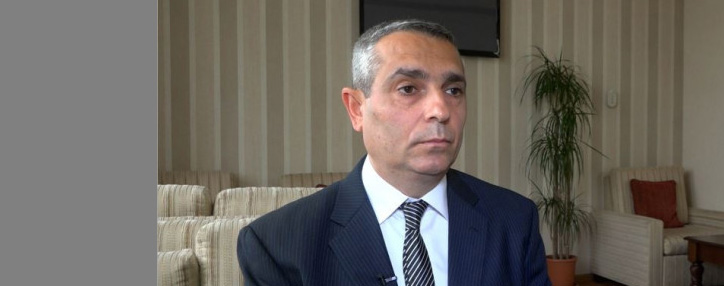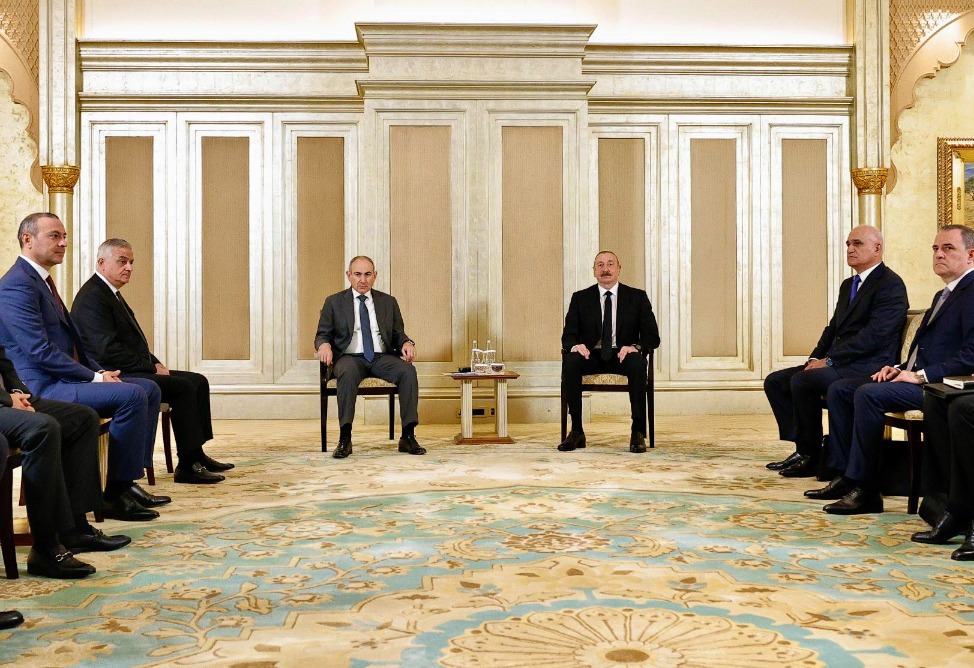Meetings between Armenian prime minister and Azerbaijani president should be continued - Mailyan
14.03.2019,
10:34
Meetings between Armenian Prime Minister Nikol Pashinyan and Azerbaijani President Ilham Aliyev should be continued, Artsakh Foreign Minister Masis Mailyan said Wednesday after meeting with OSCE Chairperson-in-Office Miroslav Lajčák, who is Slovak Minister of Foreign Affairs.

YEREVAN, March 14. /ARKA/. Meetings between Armenian Prime Minister Nikol Pashinyan and Azerbaijani President Ilham Aliyev should be continued, Artsakh Foreign Minister Masis Mailyan said Wednesday after meeting with OSCE Chairperson-in-Office Miroslav Lajčák, who is Slovak Minister of Foreign Affairs.
“Pashinyan said that at these meetings he will speak on behalf of Armenia, since he is not empowered to represent Artsakh. In this regard, everything is normal and the contacts should be continued,” he said.
Mailyan also said that at these meetings, Pashinyan will discuss the return to trilateral mode of negotiation.
As for his meeting with Miroslav Lajčák, the Artsakh foreign minister said that Artsakh’s point of view has been presented.
“We pointed out why Artsakh should take part in the talks as a third party, and I think we presented convincing reasons,” he said.
Karabakh conflict broke out in 1988 when Karabakh, mainly populated by Armenians, declared its independence from Azerbaijan.
On December 10, 1991, a few days after the collapse of the Soviet Union, a referendum took place in Nagorno-Karabakh, and the majority of the population (99.89%) voted for secession from Azerbaijan.
Afterwards, large-scale military operations began. As a result, Azerbaijan lost control over Nagorno-Karabakh and the seven regions adjacent to it.
Some 30,000 people were killed in this war and about one million people fled their homes. On May 12, 1994, the Bishkek cease-fire agreement put an end to the military operations.
Тalks brokered by OSCE Minsk Group are being held over peaceful settlement of the conflict. The group is co-chaired by USA, Russia and France..-0--
“Pashinyan said that at these meetings he will speak on behalf of Armenia, since he is not empowered to represent Artsakh. In this regard, everything is normal and the contacts should be continued,” he said.
Mailyan also said that at these meetings, Pashinyan will discuss the return to trilateral mode of negotiation.
As for his meeting with Miroslav Lajčák, the Artsakh foreign minister said that Artsakh’s point of view has been presented.
“We pointed out why Artsakh should take part in the talks as a third party, and I think we presented convincing reasons,” he said.
Karabakh conflict broke out in 1988 when Karabakh, mainly populated by Armenians, declared its independence from Azerbaijan.
On December 10, 1991, a few days after the collapse of the Soviet Union, a referendum took place in Nagorno-Karabakh, and the majority of the population (99.89%) voted for secession from Azerbaijan.
Afterwards, large-scale military operations began. As a result, Azerbaijan lost control over Nagorno-Karabakh and the seven regions adjacent to it.
Some 30,000 people were killed in this war and about one million people fled their homes. On May 12, 1994, the Bishkek cease-fire agreement put an end to the military operations.
Тalks brokered by OSCE Minsk Group are being held over peaceful settlement of the conflict. The group is co-chaired by USA, Russia and France..-0--



